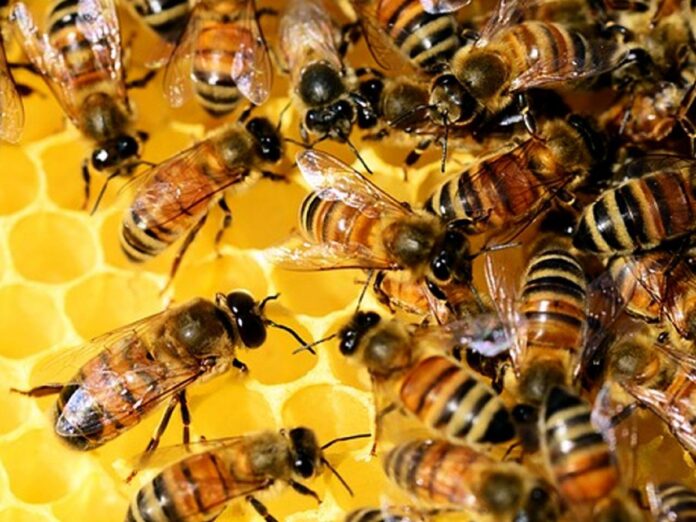RAYMONDVILLE — An 85-year-old Raymondville man was found dead after Africanized killer bees stung him about 200 times.
Juvenito Gonzales’ body was found late Tuesday afternoon amid a swarm of bees near a day care center at the intersection of FM 490 and FM 88 west of Raymondville.
Paramedics believe the man was stung about 200 times along his neck, head and face, Frank Torres, director of Willacy County Emergency Management Services, said yesterday.
“There were bees swarming around him,” Torres said. “There were a tremendous amount of bees.”
Near the body, paramedics found a bee hive in a stack of tires.
Gonzales was apparently riding a tractor on his farm when the bees attacked him, Sheriff Larry Spence said.
“He was cutting grass with the tractor and went by these tires and the noise stirred up the bees and they attacked him,” Spence said. “He got off the tractor and tried to get away, then he collapsed.”
The incident marked the first time paramedics here responded to a bee attack this year, Torres said.
“Bee attacks are something we respond to on a regular basis in the spring and summer,” he said.
But Torres said the county’s first bee attack occurred unusually early this season.
Last year, swarming bees killed a 53-year-old Rio Hondo area farmer after his tractor hit a concrete irrigation pipe, disturbing “probably thousands of bees” that stung him “hundreds of times,” an official said at the time.
Bees become aggressive when people disturb their nests, said Raul Villanueva, an entomologist with the Texas A&M AgriLife Extension Service in Weslaco.
Sergio Cordova, service manager at Esparza Pest Control in Edinburg, warns dark clothing attracts bees.
Dark colors and carbon monoxide help draw bees, Villanueva said.
Villanueva said Africanized honey bees have become “endemic” across the Rio Grande Valley.
In the mid 1990s, he said, the bees were first identified in the region.
Attempts to eradicate the bees have failed, he said.




